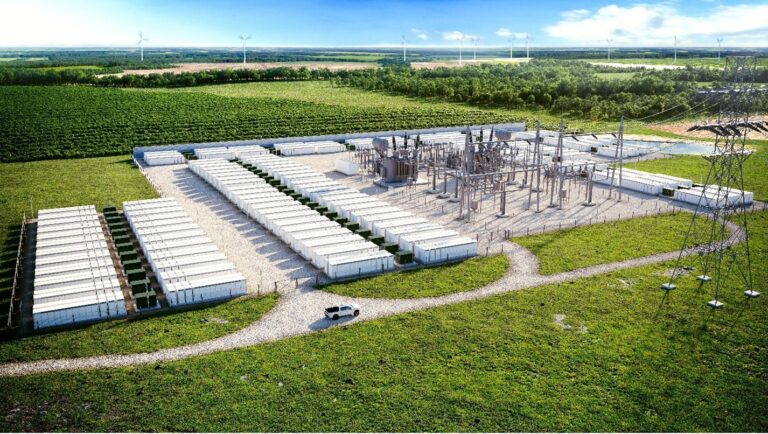Clean energy corporate power purchase agreements (Corporate PPAs) are contracts (offtake agreements) through which businesses directly purchase renewable electricity (generally including renewable attributes), normally at fixed prices, from renewable electricity generators.
Corporate PPA volumes have shown steady year-over-year growth on a global basis. Firms such as DBRS Morningstar expect the overarching benefits to various stakeholders in the electricity energy value chain will continue to drive growth in Corporate PPAs supporting clean energy development.
From a credit perspective, long-term Corporate PPAs can enhance finance-ability of renewable projects through less stringent financial metrics required to achieve investment-grade ratings. However, corporate PPAs can vary considerably and have certain structural risks (e.g. refinancing risk, basis risk) that, if not mitigated, could potentially constrain a rating.
The benefits of corporate PPAs
Electricity generators, corporations, and electricity consumers all benefit from Corporate PPAs for a few key reasons:
- They can provide stable cashflows for the electricity generators/developers, which considerably improves the finance-ability of greenfield renewable energy projects. In rating project financed projects, we view the presence of an offtake agreement with a credit-worthy contract counterparty as a key enabler for such projects achieving an investment-grade rating.
- Through fixed-price corporate PPAs, corporations can better manage (hedge) their electricity costs as these can be fairly volatile. Besides, being recognized as an environmentally friendly sustainable business supporting clean energy development (i.e., a “sustainable company”) can generate tangible benefits for corporations as consumers have shown discernable preference for green products.
- They are individually negotiated bespoke agreements between two private sector parties that can lower overall electricity costs for the electricity consumers. In contrast, renewable procurements made through a Standard Offer Program or other specific state-run electricity procurement program can be more inclusive but may not necessarily deliver the most efficient outcome(s) from a pricing perspective.
Technology companies like Google, Amazon, and Microsoft continue to be the trailblazers in corporate clean energy procurements. Materials and manufacturing companies have also become fairly active in this space. Regionally, the Americas continue to be the leaders in Corporate PPA procurements followed by Europe. Some recent examples of Corporate PPAs include Google’s solar photovoltaic (PV)/wind farm procurements in the U.S., the Netherlands, and Belgium, and Albras Aluminio Brasilerio S/A’s solar PV project in Brazil. We note in Exhibit 1 the annual global corporate PPA volumes, which demonstrate continuous and steady growth in various markets.
Improved finance-ability of renewable projects
There is no denying that renewable generation will continue to increase as countries across the globe have set aggressive policies to decarbonize electricity generation to tackle climate change. However, despite a significant reduction in the capital costs to build renewable projects, in most jurisdictions, renewable projects still require a PPA and/or some form of support for long-term sustainability.
Cash flow stability from an investment-grade Corporate PPA counterparty can enable a project to achieve investment-grade ratings and lower the project’s financing costs, supporting renewable energy development. In the absence of an offtake agreement, a renewable energy project is deemed a merchant energy project, which has more stringent financial metric (higher debt service coverage ratios) requirements in order to achieve an investment-grade rating. In general, investors and financiers still remain cautious about purely merchant renewable energy projects even though acceptance is growing as capital costs to build renewable projects reduce and technology continues to improve.
The duration of a Corporate PPA is generally long term (10 to 15 years); however, short-term Corporate PPAs that can add refinancing risk to the structure, which can constrain a rating. The different types of PPA structures—for example, physical PPAs, virtual PPAs, and others—that are prevalent in the market can introduce different credit risks, such as basis risk (where hedges to separate electricity markets are used to construct the PPAs). We evaluate each structure on a case-by-case basis to assess the overall credit risk of the project.
Managing electricity costs and enhancing CSR
Wholesale electricity prices can be volatile and the last three years are a perfect example of how much electricity prices can fluctuate in the short term. The coronavirus pandemic depressed wholesale electricity prices to their lowest levels but in the subsequent recovery, the challenging macro-economic environment drove wholesale electricity prices to new highs. Specifically, for technology companies, data centres and other IT services consume high amounts of electricity and the same applies to materials/manufacturing companies. Corporate PPAs are an effective tool for corporations to manage their electricity costs by providing medium- to long-term electricity cost certainty.
Further, being recognized as a sustainable company with a green brand image can have positive material implications for corporations seeking to demonstrate Corporate Social Responsibility (CSR).
Bending the cost curve for electricity consumers
Besides the significant societal benefits from reduced greenhouse gas emissions, corporate PPAs can lower overall electricity costs for the electricity ratepayers. One of the key concerns about Standard Offer Programs or other state-run green energy procurements is that the standard prices offered under these programs can be high because the objective of such programs is to be more inclusive and more enabling at the cost of increased electricity prices for the ratepayers. Corporate PPAs are individually negotiated agreements between producer and consumer that can bring financial discipline to the process and lower overall costs for the electricity ratepayers.

Jaideep Nagpal is vice president of project finance at DBRS Morningstar, a full-service global credit ratings business with approximately 700 employees around the world. The company is a market leader in Canada, and in multiple asset classes across the U.S. and Europe.
Featured image credit: Unsplash/Andreas Gluckhorn.











